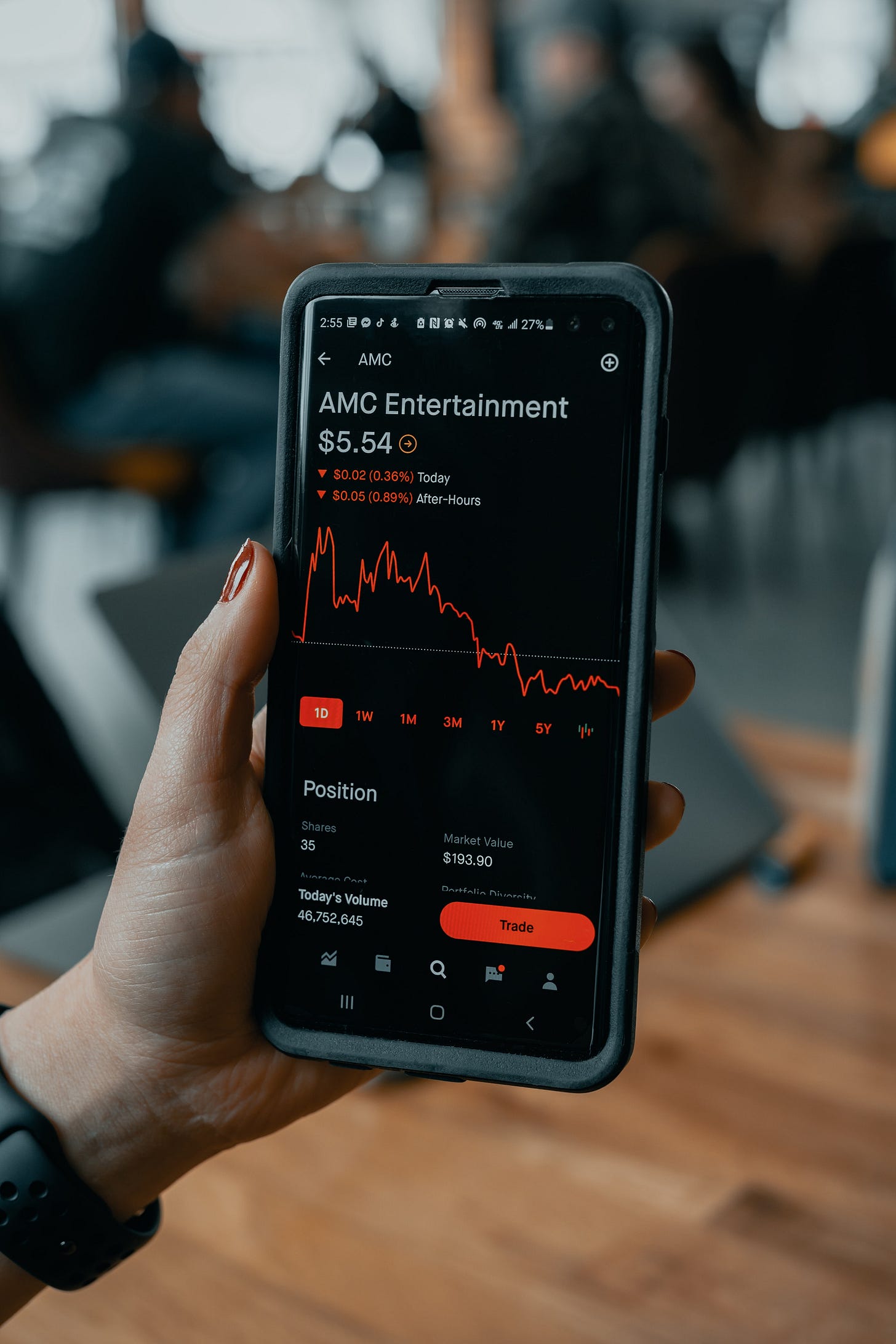Wanting What You Really Want
The desires of others often help us decide what to want. That can be a good thing or a bad thing.

View
You are in a group at a restaurant, everyone has a menu, and the orders will be taken in a minute. The most common question in that setting is “what are you having?” I think we probably all have been asked or have asked that question - what others are getting might help us decide. I may want to order a steak, but if everyone else is getting a sandwich or an appetizer … does it matter? Do you want what you are ordering or are you ordering what you think you should want? And how would you know?
Which car do you want? Is it something you associate with a certain kind of person you admire or aspire to be (lookin’ at you, Matthew McConaughey)? This is the basis of not only most automotive advertising, but advertising for all sorts of goods and services. This person wants this and enjoys this … I should want this, I will enjoy this … or I will tell myself I am enjoying this..
We live in a world of social pressures - and one of those pressures is what we should want. For every successful student who begins a trade or enlists in the military instead of enrolling in college, or who opts out of law school to pursue social work - there is a crowd of people who make that difficult decision more difficult through social pressure to some ideal or approved life of a young person. And for those who aren’t sure what they want, it is very easy to take cues for what I want from the social expectations around them. We can confuse the expectations or desires of others for our desires. Our default is often to want what others want - or, perhaps, we decide what we want based on the desires of others.
The person who spent the most time and scholarly effort to understand desire is the french philosopher Rene Girard (1923 - 2015). He claimed that much of human desire is imitative - picked up by others. He called it mimetic. As Girard popularizer Luke Burgis writes -
Girard realised one peculiar feature of desire: ‘We would like our desires to come from our deepest selves, our personal depths,’ he said, ‘but if it did, it would not be desire. Desire is always for something we feel we lack.’ Girard noted that desire is not, as we often imagine it, something that we ourselves fully control. It is not something that we can generate or manufacture on our own. It is largely the product of a social process.
‘Man is the creature who does not know what to desire,’ wrote Girard, ‘and he turns to others in order to make up his mind.’ He called this mimetic, or imitative, desire. Mimesis comes from the Greek word for ‘imitation’, which is the root of the English word ‘mimic’. Mimetic desires are the desires that we mimic from the people and culture around us. If I perceive some career or lifestyle or vacation as good, it’s because someone else has modeled it in such a way that it appears good to me.
This universal aspect of life in community seems to have been supercharged by social media. We have always been influenced by the desires of people close to us - family and friends. In the age of mass marketing culture, we have amplified the external sources of influence. As that age of mass marketing morphed into the internet age, we have gone from the old school influence of Matthew McConaughey to countless “influencers” found on Instagram, TikTok, and other social media platforms. We call it FOMO - fear of missing out - even though some of what we fear is missing out on what we are supposed to want - but aren’t sure if we really do.

Lots of people, against the expectations of experts in the markets, bought AMC stock in 2022. I don’t believe that most of those people did a careful market and value analysis to independently make that decision. A very, very large number of them came to that conclusion through the influence of social media. We called them “meme stocks” for a reason. Buying them had become a meme. More people buying them led more people to buy them. (Selling the meme stock also becomes a meme, but that happens faster and not everyone has as much fun.) The rush to crypto currencies and other investments are other examples - we don’t want to miss out on the money, but also we don’t want to miss out on the success and the fun others seem to be having.
Illustration by Luke Burgis
As the Wall Street Journal reported last month (with an eye toward its impact on the markets, of course), social influence is influencing not only what you should buy, but what is available.
From makeup to Dash miniature waffle makers and Stanley water tumblers, items are going viral on TikTok and other social-media platforms, launching seemingly modest products into booming sales and making the items nearly impossible to find. For the brands and their promoters, that is creating a new challenge: How do they build supply chains for goods that may sell in the millions, but only if they catch fire online?
There is more to say on social contagion - but at the moment I want to focus more closely on us - you and me. What we desire to buy, what we desire politically, what we desire experientially is influenced by those around us … my point isn’t that this is bad (necessarily) - we don’t always know what we should want and it helps to look around. Street Tacos sound desirable after you have ordered them. This is harmless (in this setting), maybe even helpful. This likely started with the first groupings of people. But when we look around, our desires can be distorted by what others around us want. The herd doesn’t always go to the healthiest places. And, because of the influences of others or apart from them, we don’t always want what is good for us and what is good for us we don’t always want. We should eat healthier and exercise, but we don’t always want to. We may want revenge while believing that revenge is harmful.
What should we want?
Illustration by Luke Burgis
It isn’t that the “more mimetic” desires - those conditioned by society around us are bad. It isn’t that fashions are evil or trends are to be avoided or you should never go along with what others want. It is that the less mimetic desires probably are closer to who we really are, and shouldn’t be drowned out by how popular they may seem or how that desire may be viewed.
The person who decides to be an artist rather than a lawyer may swim against the mimetic tide. But that might be good. What do you really want? And, removed from the relentless messaging of what those around us want, do you really know what it is that you want?
Answering that question leads to deeper places. I believe I was made to desire the eternal, the transcendent … to desire God. I can still drive a cool car - but wanting a cool car is a bit less fundamental to who I am. Or it should be.
Take delight in the Lord,
and he will give you the desires of your heart.
Psalm 37:4
The Psalmist tells us that, grounded in the desire for God and delight in Him, the desires of my heart become more of what they should be. They are shaped through my delight in the Lord. I want, more and more, what God - who knows me better and loves me more deeply than I (or others, or the crowd) do - made me to desire. He gives me what I desire as I desire, more and more what I was designed to desire.
Can I desire what God has graciously given me? Can I retrain my desire to match what I am made to desire? All my desires can be met in a God-centered life … can I desire what God wants to give me?
May he give you the desire of your heart
and make all your plans succeed.
Psalm 20:4
The encouragement of this desire in the community of faith is part of what church should be - spiritual growth might be characterized as a life more marked by the enjoyment of God - of delighting in the Lord, and, in that delight - having the desire of our heart … having He who is the Desire of our heart. As the very first question of the most influential Protestant statement of faith asks and answers:
Q. 1. What is the chief end of man?
A. Man’s chief end is to glorify God, and to enjoy him forever.
The Westminster Confession of Faith - Shorter Catechism
Faith has many aspects and applications, but one aspect (as outlined in this ‘statement of faith’) is believing that desiring God and enjoying Him is not only what life should be, but that it will result in the most fulfillment, peace, and joy.
Links
Why everyone wants the same things - Luke Burgis - The Free Press
Meme stocks - Bloomberg
Eyeliner out of Stock? Blame Tik Tok - Wall Street Journal





